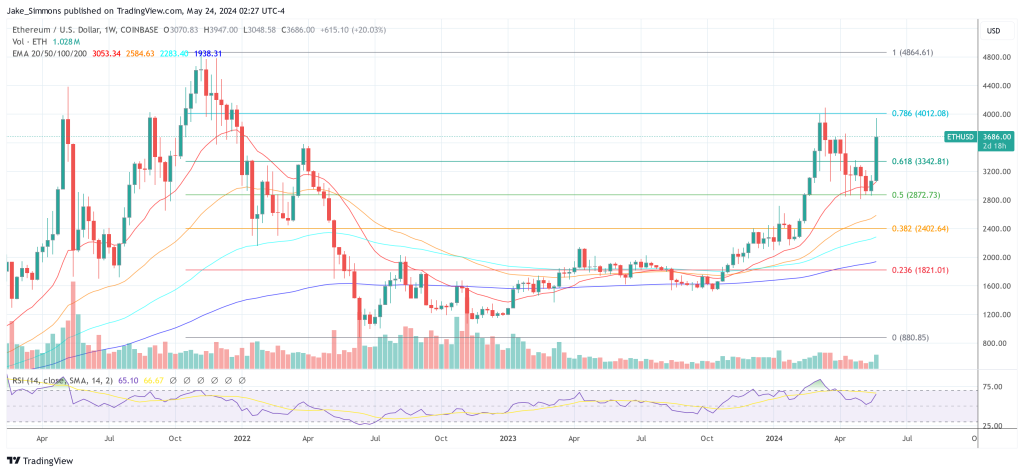ARTICLE AD BOX
On Thursday, the US Securities and Exchange Commission (SEC) made a landmark decision by approving eight spot Ethereum Exchange-Traded Funds (ETFs) from leading financial institutions and crypto firms, including Grayscale, Bitwise, BlackRock, and ARK. This historic approval, which consolidated proposals from the Nasdaq, NYSE, and CBOE, marked a significant shift in the regulatory landscape of digital assets.
Why The SEC Is In ‘Deep Trouble’ With Its Crypto Cases
However, this decision comes with its complexities, particularly in light of ongoing legal challenges involving the classification of other cryptocurrencies. Prominent crypto lawyer James “MetaLawMan” Murphy commented, “I believe the SEC is in deep trouble with some of its crypto cases in light of its determination that ETH is a commodity.”
He emphasized that the SEC repeatedly argued in the Coinbase case “that crypto tokens that operate within an ‘ecosystems are securities.’ I believe the SEC will have difficulty explaining how ETH, which operates within a giant ecosystem, is a commodity, but SOL and ADA are securities when traded on Coinbase.”
This statement encapsulates the core of the issue: Ethereum operates within a robust ecosystem that includes not just investment and trading but also decentralized applications and smart contracts, similar to other blockchains like Solana and Cardano. The distinction made by the SEC might complicate its stance in ongoing and future litigation, particularly cases involving other cryptocurrencies that operate under similar paradigms but are classified differently.
Murphy also suggested potential legal maneuvers by affected parties: “Coinbase is due to file a Reply Brief tomorrow on its Petition to Certify Interlocutory Appeal. It would not surprise me if they also filed a request for rehearing of their motion to dismiss in light of the fact that the SEC now concedes that ETH is a commodity.”
He also refers to Judge Failla’s earlier ruling in the Coinbase case where she bought into the SEC’s ecosystem argument and used it as a basis for her ruling. “When a customer purchases a token on Coinbase’s platform, she is not just purchasing a token, which in and of itself is valueless; rather, she is buying into the token’s digital ecosystem, the growth of which is necessarily tied to the value of the token.”
Consensys, a major Ethereum software developer, also expressed concerns with the SEC’s decision-making process, suggesting it reflects an inconsistent and ad hoc approach to digital asset regulation. In a statement, the company said: “This seemingly last minute approval is yet another example of the SEC’s troublesome ad hoc approach to digital assets. No other industry, market, or asset is subject to such deliberate regulatory abuse. It is unfair to market participants, antithetical to the rule of law, and handcuffing innovation.
On today’s SEC ruling:
While Consensys welcomes today’s decision to approve ETH Spot ETFs as a step in the right direction, this seemingly last minute approval is yet another example of the SEC’s troublesome ad hoc approach to digital assets. No other industry, market, or…
— Consensys (@Consensys) May 23, 2024
Sam Callahan, a senior analyst at Swan, noted a key omission in the SEC’s approval document: “Interesting paragraph in the SEC’s Ethereum ETF approval document. The SEC basically looked at the ETF products and whether they could adequately protect investors and maintain fair markets, and that’s about it. No mention of securities laws or ETH classification. No mention of the Howey Test.”
Thus, the absence of a clear stance on Ethereum’s classification under securities laws still raises questions about future regulatory challenges and implications for other digital assets. “We may have to wait for a statement from Gensler, and even then, he could sidestep the topic altogether,” Callahan remarked.
At press time, ETH traded at $3,686.

.png)
 7 months ago
2
7 months ago
2








 English (US)
English (US)